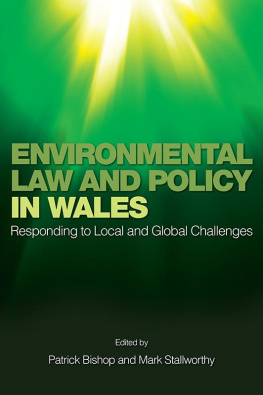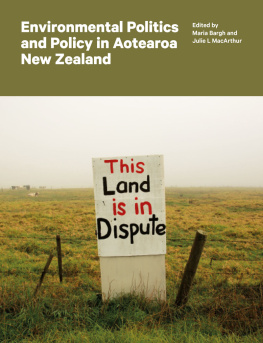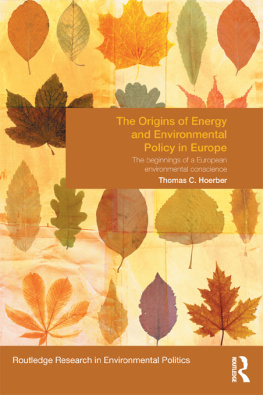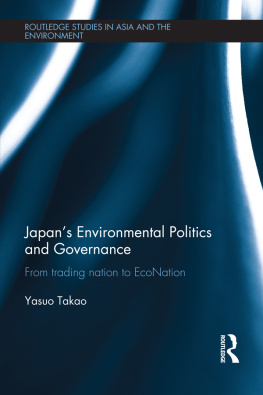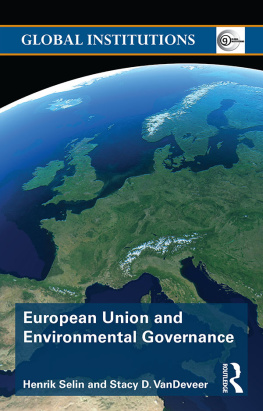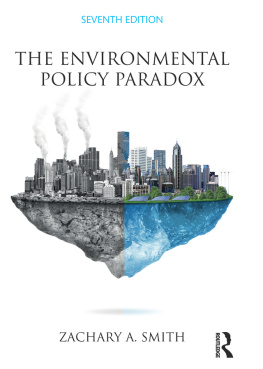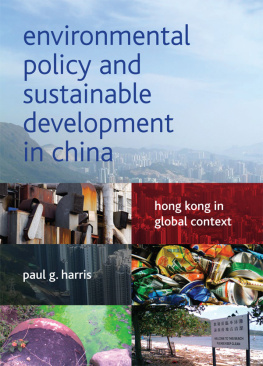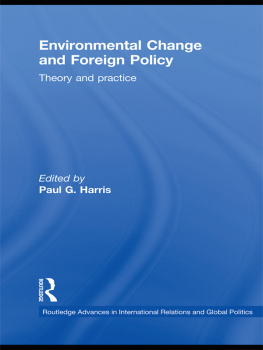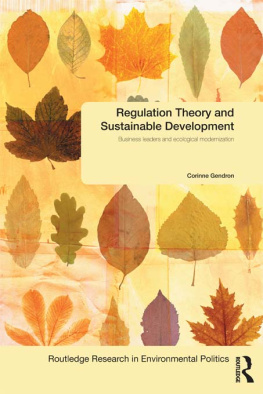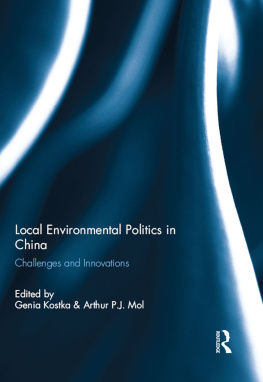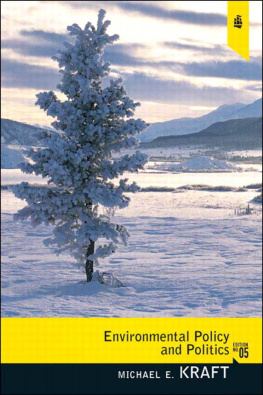Environmental Law and Policy in Wales
The Contributors, 2013
All rights reserved. No part of this book may be reproduced in any material form (including photocopying or storing it in any medium by electronic means and whether or not transiently or incidentally to some other use of this publication) without the written permission of the copyright owner except in accordance with the provisions of the Copyright, Designs and Patents Act 1988. Applications for the copyright owners written permission to reproduce any part of this publication should be addressed to the University of Wales Press, 10 Columbus Walk, Brigantine Place, Cardiff CF10 4UP.
www.uwp.co.uk
British Library Cataloguing-in-Publication Data
A catalogue record for this book is available from the British Library.
ISBN 978-0-7083-2580-3
e-ISBN 978-1-78316-025-9
The right of the Contributors to be identified as authors of this work has been asserted in accordance with sections 77, 78 and 79 of the Copyright, Designs and Patents Act 1988.
Typeset by Prepress Projects Ltd, Perth, UK
Printed by the MPG Group, Bodmin, Cornwall
Patrick Bishop and Mark Stallworthy
Karen Morrow
Mark Wilde
Mark Wilde
Lynda M. Warren
Patrick Bishop
Robert Lee
Victoria Jenkins
Mark Stallworthy
Elen Stokes
Foreword
I am delighted to have the opportunity to set the context for this important publication, which draws on the expertise in environmental law based in our Welsh universities.
It reflects the very distinctive role that Wales is playing in meeting the pressing environmental challenges that are faced by societies around the world. This role was established in law under the Government of Wales Act, which requires Welsh Ministers to set out how they propose to promote sustainable development in the exercise of their functions. It will be further strengthened by new legislation in the shape of a Sustainable Development Bill, which will deepen and extend this duty across the whole of the devolved public sector in Wales. The Bill will be set alongside other legislation covering environmental impacts and will coincide with the establishment of a new single environment body, Natural Resources Wales.
These changes are designed to use the new legislative powers to refresh, simplify and modernize a range of legislation that has grown through accretion since 1945. This represents a key stage in the devolution process, establishing a framework for sustainable development which is clear, connected and consistent, provides certainty, and focuses on the long term.
At a time when global solutions to our environmental challenges seem a long way off, it is critical that we improve our capacity to govern for the long term at a national, regional and local level. It is worth remembering that the UN Rio+20 summit estimated that states and regions are responsible for 7080 per cent of everything that needs to be done, with much of the real progress of the last twenty years resulting from leadership at this level. Regional and local governments are closer to the action, with the capacity to expand ambition and drive change in partnership with business and communities, incubating new ideas, and to scale up action and replicate success.
This book, then, is a very timely contribution from environmental lawyers in the Welsh academy and is itself another sign of a growing strength and vitality in Welsh contributions to environmental problem solving more widely. The selection of papers tackles some of the major environmental challenges and explains how the principles and processes of the law are applied, offering fresh insights into how law can be deployed most effectively in the development of environmental policy goals. Environmental Law and Policy in Wales: Responding to Global and Local Challenges is welcome as a fresh, thought-provoking contribution to continuing and urgent environmental debates.
Peter Davies
Sustainable Futures Commissioner for Wales
Preface
The catalyst for this collected volume was the powerful feeling that, with a significant dynamic towards a devolved Wales now in train (a key element within which is environmental law and policy), this was an opportune moment to reflect on aspects of our shared engagement with those same challenges. To this end a colloquium was held at Swansea University in April 2011, during which colleagues were asked to address a range of legal quandaries affecting the goals of environmental protection from a Welsh perspective. Most of all, the sessions that followed afforded the opportunity to pause and reflect on the conceptual foundations of what we are about, and to view both technically and critically the tools of our trade. Many of the papers there, and themes introduced therein, have been subsequently developed into the chapters collected here.
At the same time, we were agreed that our discussions were taking place within what can be categorized as both a mature and an emerging Welsh legal jurisdiction. Speakers were informed by a timely sense of being rooted in place, also recognizing a notably complex law and policy context on account of its many cross-cutting and multi-dimensional environmental themes. It will, we hope, be seen that contributions presented here variously engage with such challenges in an expansive spirit, sharing recourse to black letter law whilst also alive to the limitations in the sort of reductionist thinking that envisages a neat segmentation of problems within narrow doctrinal (or disciplinary) confines. Two final points: first, as editors, we have sought to see relevant law and policy reflected here in early 2012; and, second, we are much indebted both to our publishing editor, Sarah Lewis, for her forbearance and her unflinching support for this project, and to an anonymous reviewer whose wise and constructive suggestions have helped make this volume a much improved academic effort on all our parts.
Patrick Bishop and Mark Stallworthy
Swansea, May 2012
Contributors
Dr Patrick Bishop is a lecturer at the School of Law, Swansea University, and a member of the Centre for Environmental and Energy Law and Policy (CEELP). His research to date has focused on numerous aspects of environmental law, including the utility of private law as a method of environmental protection, environmental ethics, environmental crime, and regulatory approaches and enforcement. His publications reflect these varied interests.
Dr Victoria Jenkins is a lecturer at the School of Law, Swansea University, and deputy director of the Hywel Dda Institute for the promotion of Legal Wales. In research terms, she is broadly interested in public environmental law, but particularly in legal approaches to the achievement of sustainable development and the impact of devolution on environmental protection in the UK.

